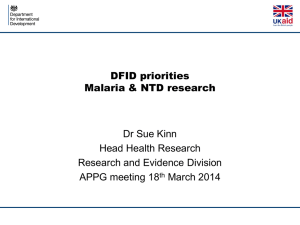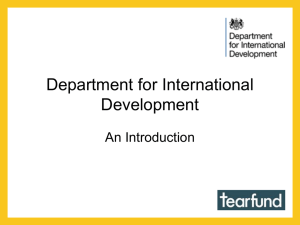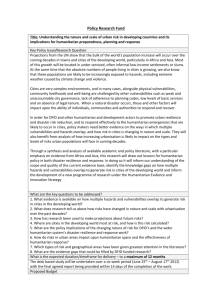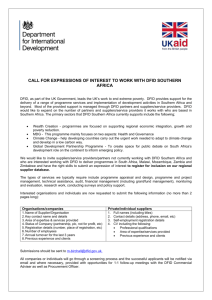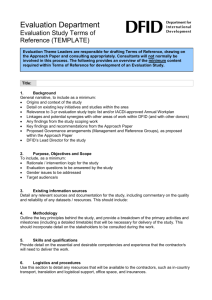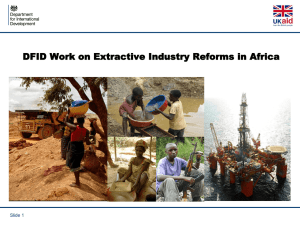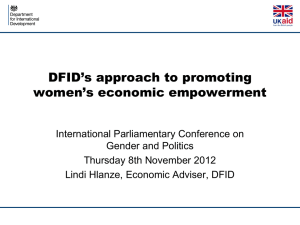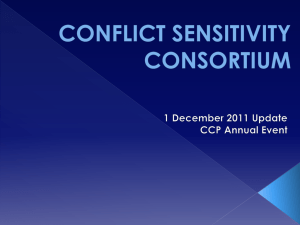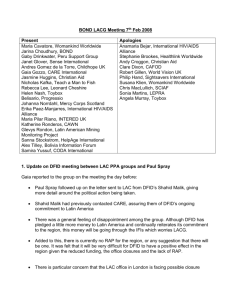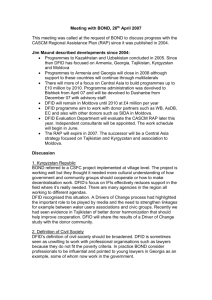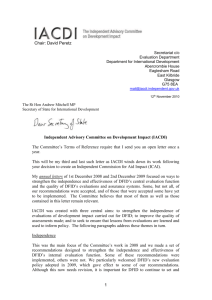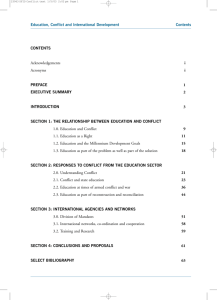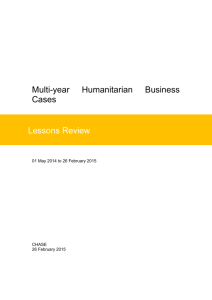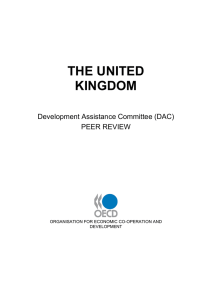DFID evaluation of tsunami response
advertisement
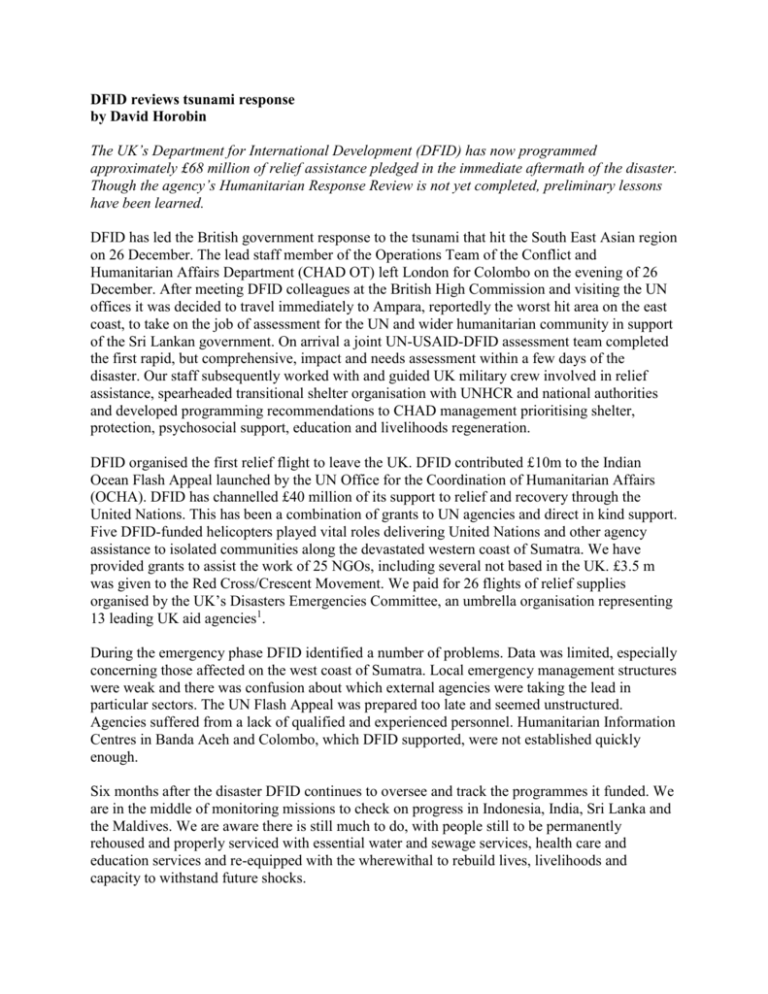
DFID reviews tsunami response by David Horobin The UK’s Department for International Development (DFID) has now programmed approximately £68 million of relief assistance pledged in the immediate aftermath of the disaster. Though the agency’s Humanitarian Response Review is not yet completed, preliminary lessons have been learned. DFID has led the British government response to the tsunami that hit the South East Asian region on 26 December. The lead staff member of the Operations Team of the Conflict and Humanitarian Affairs Department (CHAD OT) left London for Colombo on the evening of 26 December. After meeting DFID colleagues at the British High Commission and visiting the UN offices it was decided to travel immediately to Ampara, reportedly the worst hit area on the east coast, to take on the job of assessment for the UN and wider humanitarian community in support of the Sri Lankan government. On arrival a joint UN-USAID-DFID assessment team completed the first rapid, but comprehensive, impact and needs assessment within a few days of the disaster. Our staff subsequently worked with and guided UK military crew involved in relief assistance, spearheaded transitional shelter organisation with UNHCR and national authorities and developed programming recommendations to CHAD management prioritising shelter, protection, psychosocial support, education and livelihoods regeneration. DFID organised the first relief flight to leave the UK. DFID contributed £10m to the Indian Ocean Flash Appeal launched by the UN Office for the Coordination of Humanitarian Affairs (OCHA). DFID has channelled £40 million of its support to relief and recovery through the United Nations. This has been a combination of grants to UN agencies and direct in kind support. Five DFID-funded helicopters played vital roles delivering United Nations and other agency assistance to isolated communities along the devastated western coast of Sumatra. We have provided grants to assist the work of 25 NGOs, including several not based in the UK. £3.5 m was given to the Red Cross/Crescent Movement. We paid for 26 flights of relief supplies organised by the UK’s Disasters Emergencies Committee, an umbrella organisation representing 13 leading UK aid agencies1. During the emergency phase DFID identified a number of problems. Data was limited, especially concerning those affected on the west coast of Sumatra. Local emergency management structures were weak and there was confusion about which external agencies were taking the lead in particular sectors. The UN Flash Appeal was prepared too late and seemed unstructured. Agencies suffered from a lack of qualified and experienced personnel. Humanitarian Information Centres in Banda Aceh and Colombo, which DFID supported, were not established quickly enough. Six months after the disaster DFID continues to oversee and track the programmes it funded. We are in the middle of monitoring missions to check on progress in Indonesia, India, Sri Lanka and the Maldives. We are aware there is still much to do, with people still to be permanently rehoused and properly serviced with essential water and sewage services, health care and education services and re-equipped with the wherewithal to rebuild lives, livelihoods and capacity to withstand future shocks. DFID is conscious of its obligations under the Good Humanitarian Donorship initiative to improve learning and coordination. We are currently undertaking a comprehensive Humanitarian Response Review of our tsunami response, the results of which will be shared with other donors. A meeting of donor operations managers is planned Detailed recommendations will emerge but from a personal perspective I believe the tsunami has taught us the need for: a common logistics services across the UN system Experienced UN Humanitarian Coordinators to have increased empowerment UN and EU standing disaster response to be improved the EU to develop mechanisms to promote greater UN coordination clear guidelines for cooperation between military and civilian humanitarian workers improved professional standards and qualification structures for humanitarian staff agreed common operational objectives amongst donors. David Horobin is Operations Team Director, Conflict and Humanitarian Affairs Department, DFID. Email: D-Horobin@dfid.gov.uk. This article is written in a personal capacity and does not necessarily represent the views of DFID or the UK government. 1 www.dec.org.uk
